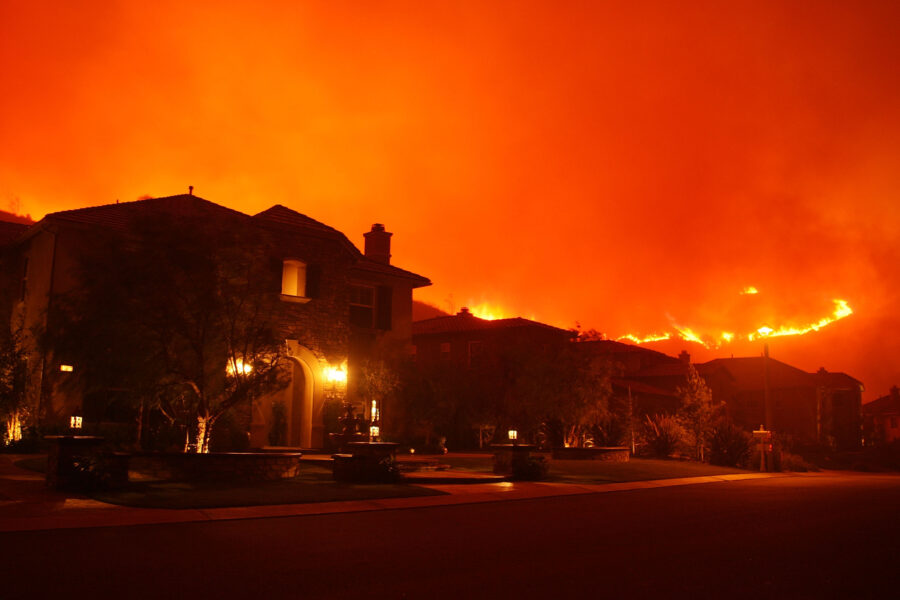Azerbaijan has selected its ecology minister—and a former executive at the country’s state-run oil company—to lead the United Nations’ flagship climate conference later this year. The decision has reignited fierce debate over the role the fossil fuel industry should play in global climate talks.
U.N. officials on Friday confirmed the appointment of Mukhtar Babayev as the COP29 president. Babayev ran Azerbaijan’s oil company SOCAR for nearly 25 years before becoming the nation’s minister of ecology and natural resources in 2018.
It’s the second year in a row that an oil industry veteran will oversee the negotiations, which aim to slash climate-warming carbon emissions and transition away from fossil fuels. It’s also the second consecutive year that the talks will be hosted by a petrostate—a country whose economy is heavily reliant on producing oil and gas. COP28 was held in the United Arab Emirates last year. Brazil, which is slated to host COP30 in 2025, will mark the third year.
Climate advocates say the pattern is proof that the U.N. summit’s process is flawed, and many are now calling for “a substantial overhaul” of the COP system, which has allowed countries like Saudi Arabia, Russia and the United States to single-handedly block decisions that otherwise would have passed.
Some activists also criticized the selection of Azerbaijan as this year’s host country. An analysis by U.K.-based advocacy group Global Witness found that oil giant BP and its project partners have invested $35 billion in oil and gas production by Azerbaijan’s government since 2020.
“The U.N. has largely lost the confidence of youth climate advocates who feel betrayed by what they see as a deck stacked heavily on the side of polluters,” Michael Mann, a prominent climate scientist and professor in the University of Pennsylvania’s Department of Earth and Environmental Science, wrote last month in an op-ed for the Los Angeles Times. “Given the enormous conflict of interest, oil industry executives should not be allowed to heavily influence, much less preside over, the summit.”
Some advocates, including Mann, believe the U.N. should adopt new rules, such as financial penalties like tariffs that would be leveled at nations that attempt to thwart the global effort to transition away from fossil fuels, one of the main agreements ratified at last year’s negotiations. Many advocates also want decisions at the talks to be made by supermajority rather than the full-consensus system now in place, which allows just one of the 195 nations that signed the Paris Agreement to block a deal.
In fact, that’s how Azerbaijan—a former Soviet Union state—was elected to host this year’s climate talks in the first place. Next year’s COP was set to be held in eastern Europe. But Russian delegates had vowed to block any European Union country from hosting as retaliation to the bloc’s support of Ukraine in its war with Russia. Azerbaijan had been the only nomination to gain Russia’s approval.
Resistance at last year’s COP, specifically from Saudi Arabia and Russia, prompted prominent climate activist and former U.S. vice president Al Gore to criticize the United Nations’ conference, saying it “allows a single nation to veto what the rest of the world wants to do.”
Other activists, such as Tara Houska, founder of the Indigenous climate advocacy group Giniw Collective, have suggested moving away from the COP summits entirely. “Is there a point at which legitimate climate advocates cease legitimizing COP?” Houska posted on social media Friday, following Babayev’s appointment announcement. “It’s more than clear this gathering has been fully co-opted by fossil fuels. Is directing our energy to fighting over a conference worthwhile?”
It’s unclear just how Babayev will handle this year’s negotiations, and whether he’ll be able to avoid the scandals that plagued last year’s president Sultan Ahmed al-Jaber, head of the UAE state-run oil company. Al-Jaber drew the ire of advocates after video surfaced of him saying there was no science backing the need to transition away from fossil fuels.
The Guardian reported that Babayev conveyed to U.N officials that his mission as his country’s ecology minister has been to “change the mentality” of Azerbaijanis about their responsibilities to the environment.
More Top Climate News
2023 Was the World’s Hottest Year on Record—by a Huge Margin: Scientists at the EU’s Copernicus Climate Change Service say that 2023 “smashed” the record for the hottest year by a huge margin, providing “dramatic testimony” of how much warmer the climate is today compared to the past, Damian Carrington reports for the Guardian. The planet was 1.48 degrees Celsius hotter last year compared to pre-industrial times, and researchers say the 1.5 degrees threshold will likely be exceeded for the first time in the next 12 months—though only temporarily.
Supreme Court Won’t Hear Minnesota’s Climate Lawsuit Against Oil Giants: The Supreme Court on Monday declined to hear an appeal by Big Oil to move a climate-related lawsuit filed by Minnesota out of state court and into federal court, where the fossil fuel industry believes it will have a better chance of winning, Clark Mindock reports for Reuters. Last year, a federal appeals court ruled in favor of Minnesota, which is accusing ExxonMobil, Koch Industries and the American Petroleum Institute of misleading the role their petroleum products play in climate change.
America’s First Commercial-Scale Offshore Wind Farm Is Finally Online: The nation’s first large-scale offshore wind farm sent power to the Massachusetts electricity grid last week, marking a milestone for an industry marred by decades of regulatory, financial and political delays, Jennifer McDermott reports for the Associated Press. Avangrid and Copenhagen Infrastructure Partners, joint owners of the Vineyard Wind project, announced it delivered about 5 megawatts of power to the Massachusetts grid. The 800-megawatt wind farm will eventually be able to power more than 400,000 homes.
Today’s Indicator
1.58°C
That’s how much higher scientists with the UK’s Met Office expect the average global temperature this year will rise above pre-industrial levels, topping last year’s record-breaking heat that was boosted by a strong El Niño.
About This Story
Perhaps you noticed: This story, like all the news we publish, is free to read. That’s because Inside Climate News is a 501c3 nonprofit organization. We do not charge a subscription fee, lock our news behind a paywall, or clutter our website with ads. We make our news on climate and the environment freely available to you and anyone who wants it.
That’s not all. We also share our news for free with scores of other media organizations around the country. Many of them can’t afford to do environmental journalism of their own. We’ve built bureaus from coast to coast to report local stories, collaborate with local newsrooms and co-publish articles so that this vital work is shared as widely as possible.
Two of us launched ICN in 2007. Six years later we earned a Pulitzer Prize for National Reporting, and now we run the oldest and largest dedicated climate newsroom in the nation. We tell the story in all its complexity. We hold polluters accountable. We expose environmental injustice. We debunk misinformation. We scrutinize solutions and inspire action.
Donations from readers like you fund every aspect of what we do. If you don’t already, will you support our ongoing work, our reporting on the biggest crisis facing our planet, and help us reach even more readers in more places?
Please take a moment to make a tax-deductible donation. Every one of them makes a difference.
Thank you,














